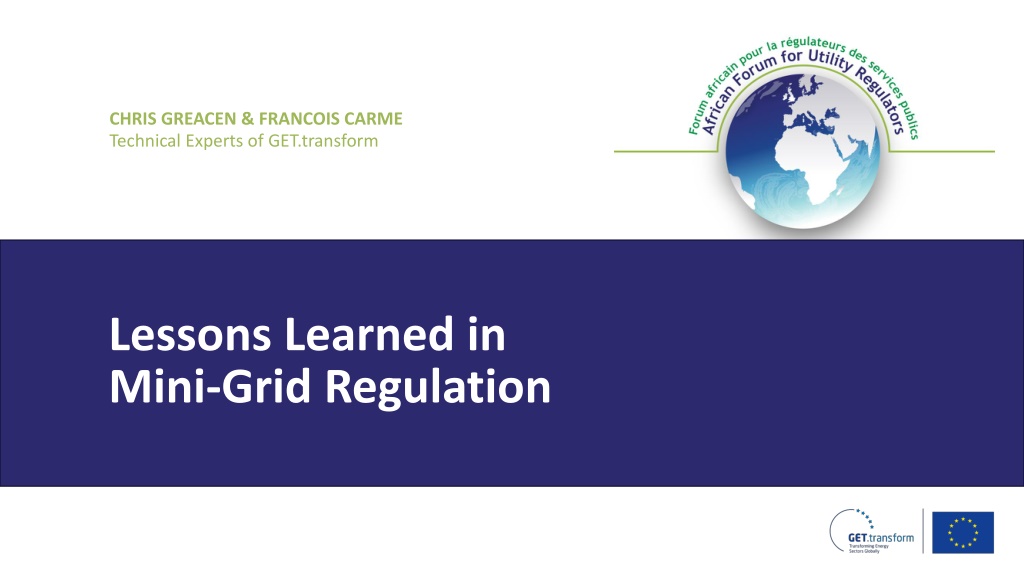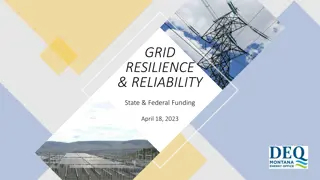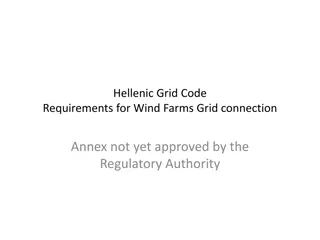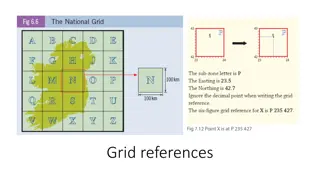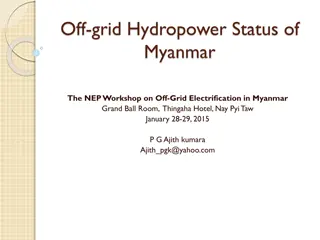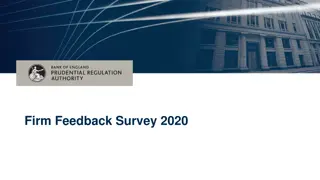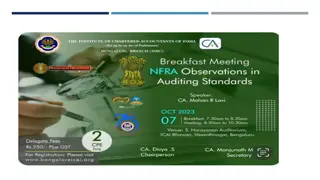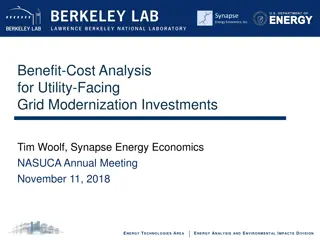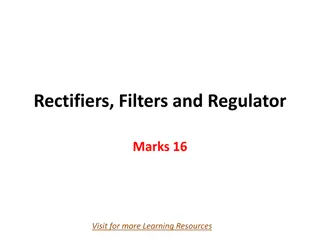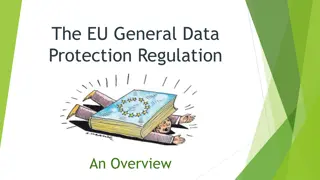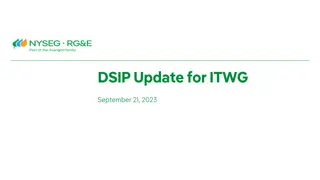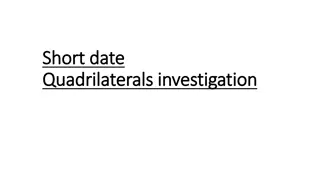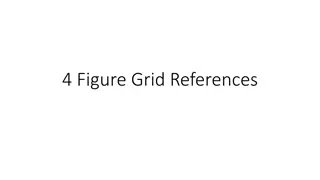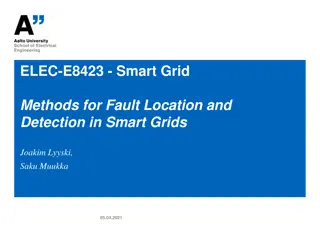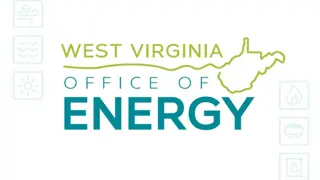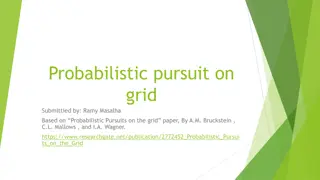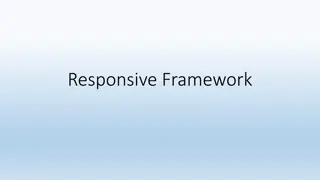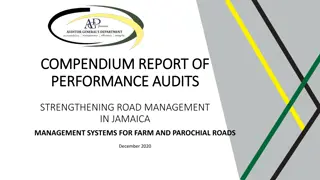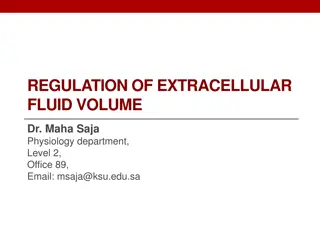Lessons Learned in Mini-Grid Regulation: Key Insights for Regulators
Technical experts Chris Greacen and Francois Carme share key lessons learned in mini-grid regulation, emphasizing certainty, flexibility, fairness, and streamlining. They highlight the importance of clear rules, long licensing periods, flexibility in tariff structures, and fostering a conducive environment for mini-grid operators. The goal is to ensure efficient service delivery and investment security based on international experiences in countries like Benin, Ethiopia, and Nigeria.
Download Presentation

Please find below an Image/Link to download the presentation.
The content on the website is provided AS IS for your information and personal use only. It may not be sold, licensed, or shared on other websites without obtaining consent from the author. Download presentation by click this link. If you encounter any issues during the download, it is possible that the publisher has removed the file from their server.
E N D
Presentation Transcript
CHRIS GREACEN & FRANCOIS CARME Technical Experts of GET.transform Lessons Learned in Mini-Grid Regulation
Background Key lessons learned especially for regulators and agencies Implementation of mini-grid projects under new and well-developed regulatory frameworks The goal is to ensure efficient service delivery and investment security Stemming from international experience: Benin, Ethiopia, Haiti, Kenya, Myanmar, Nigeria, Rwanda and Tanzania 14/09/2024 2
Overview of Lessons Learned Four key regulatory touchstones: Certainty Flexibility Fairness Streamlining Need for mindset change from public institutions to move from pilot stage of several tens of mini-grids under operation to thousands as per the common targets set in National Electrification Strategies. Example of conducive measures: Offer long periods of licensing or concession >30 years like any other infrastructure projects Offer tax exemption on VAT on the tariff applied to end-users and on corporate income tax (in addition to import duties) Across six regulatory issues: Licensing and concession granting Tariffs Technical & performance standards Stakeholder relations Grid arrival Grant disbursement and procurement 14/09/2024 3
Certainty Clear and consistent rules are essential to minimise investment risks, reduce opportunities for corruption, and secure investments Licensing periods should exceed 20 years Regulators should resist pressures to renege on approved mini grid tariffs and arrangements Grid extensions should be consistent with official plans and off-grid sites need to be clearly delineated and secured Set and publish fiscal incentives. E.g. exemption on tariff VAT and corporate tax Ensure a proper O&M plan is included Establish a pre-qualification certification for mini grid developers to eliminate low- quality developers 14/09/2024 4
Flexibility Flexibility allows developers to adapt business models, engineering designs, and tariff structures that meet the needs of the local community with minimum waste and inefficiency Regulators need to be flexible in allowing the transfer of mini-grid ownership and operating rights Encourage mini-grid operators to adopt tariffs that vary by time of use (TOU) and offer lower tariffs for customers willing to shed load Appraise initial tariffs with flexibility and allow for adjustments 14/09/2024 5
Flexibility Tailor distribution standards to suit local conditions Recognise that requirements of ultra-high reliability increase costs. Regulators should maintain regular formal and informal direct contacts with developers. Disburse performance-based grants as milestones are met Consider differentiated grants based on project location 14/09/2024 6
Fairness Fairness ensures that a mini grid industry is viable, that investors will find the environment suitable for investing, and ultimately rural communities gain access to critical energy services Recognise that viable mini grid tariffs are higher than main grid tariffs Tariff regulations should encourage mini grids to incentivise productive electricity usage In the framework of the tariff revision mechanisms, the regulator needs to be aware of price elasticity 14/09/2024 7
Fairness Set, publish, and enforce minimum quality standards Enhance regulatory transparency by publishing stakeholder comments, applications and approvals, on the regulator's website Include compensation rules for early grid arrival Prepare and share technical design studies 14/09/2024 8
Streamlining Time is precious for regulators as well as for developers and thus it is essential to set up processes that conserve this precious resource. Aim for simple and straightforward applications for licensing License batches of clustered mini grids Regulators should adopt a standard tariff model and make this available to mini grid developers for their submissions Standardise, digitise, and automate tariff review Enable mini grid operators to adjust approved retail tariffs automatically Provide simplified standard study templates Streamline the disbursement of grants while ensuring it does not lead to corruption 14/09/2024 9
Thank you for your attention! FRANCOIS CARME Team Lead - GET.transform Technical Assistance Regulation and Market Development francois.carme@gfa-group.de Link tbd Link tbd AFUR is grateful to the support provided by the European programme GET.transform get.transform.eu
